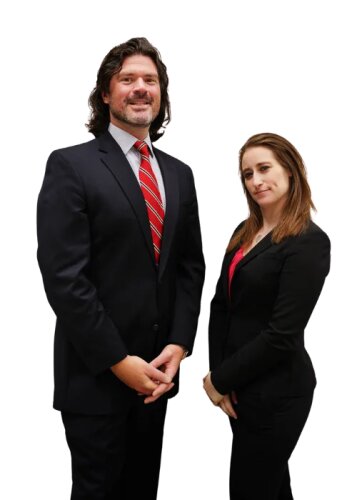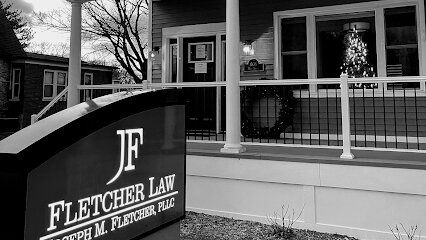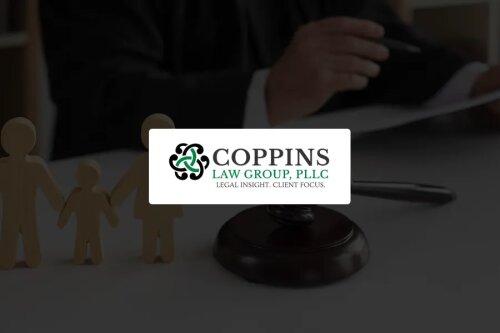Best Domestic Violence Lawyers in New York City
Share your needs with us, get contacted by law firms.
Free. Takes 2 min.
Free Guide to Hiring a Family Lawyer
List of the best lawyers in New York City, United States
1. About Domestic Violence Law in New York City, United States
Domestic Violence (DV) law in New York City combines state statutes with city level safety initiatives. It covers a range of abusive behaviors, including threats, physical harm, stalking, and coercive control. In NYC, victims and witnesses can pursue protective relief through Family Court or Criminal Court, depending on the situation and goals.
Protective orders are a central tool to stop abuse and keep people safe. An order may require the abuser to stay away from home, work, or school, and can include guidance on child safety and contact limits. Enforcement is serious, and violations can lead to new or enhanced charges.
Emergency actions and rapid response are common in New York City. The NYPD may make an arrest if there is probable cause of domestic violence; courts can issue temporary protections quickly to address immediate danger. For ongoing needs, counsel can help obtain longer term relief and plan safety measures.
"An order of protection is a court order that can prevent contact between the abuser and the victim and may require the abuser to stay away from the victim's home, workplace, or other locations."New York State Office for the Prevention of Domestic Violence
2. Why You May Need a Lawyer
These examples illustrate concrete situations in New York City where legal counsel is essential. Each scenario has distinct pathways in Family Court or Criminal Court, and a lawyer can tailor the strategy to your safety and goals.
- You are served with an Order of Protection in NYC and must respond quickly. A lawyer can help you understand the terms, prepare a response, and plan next steps to protect your interests.
- You want to obtain a protective order after a DV incident. An attorney can file in the correct court, present evidence, and negotiate terms such as stay away provisions and parenting time protections.
- You face criminal charges related to domestic violence. A defense attorney can handle arraignment, motions, discovery, and sentencing considerations while addressing safety and rights.
- You need to modify or extend an existing order of protection due to changes in your situation. A lawyer can file for a modification and represent you at hearings.
- Your case involves child custody or parenting time where DV occurred. Legal counsel can coordinate DV safety needs with family court custody determinations and mediation considerations.
- You are an immigrant or have immigration concerns linked to DV. An attorney can assess options under immigration law and connect you with qualified DV or immigration specialists.
3. Local Laws Overview
Family Court Act - Orders of Protection
The Family Court Act governs protective orders issued by Family Court in New York, including temporary orders and final orders of protection. These orders aim to prevent abuse and safeguard children and spousal or partner relationships within a family or household context. In NYC, these proceedings are a common route for non-criminal DV relief and can be initiated by the survivor or (in some cases) a guardian or parent for a child.
Key features include ex parte relief in urgent situations, clear conditions on contact, and a formal hearing to determine longer term protections. You can seek modification if circumstances change, and enforcement is handled by law enforcement and the courts. For more details, see the official Family Court guidance on protective orders.
Penal Law - Harassment and Stalking (and related DV crimes)
New York Penal Law addresses behaviors often involved in DV, such as harassment, stalking, and assault. These laws provide criminal avenues for accountability and can intersect with civil protective orders. Understanding which statute applies helps in coordinating criminal charges with civil relief and safety planning.
Stalking and harassment provisions commonly appear in DV cases when repeated unwanted contact, threats, or intimidating behavior occurs. A lawyer can explain how these charges impact your case and how criminal and civil remedies interact in NYC.
Civil Practice Law and Rules and Criminal Procedure Law - Protective Orders
Civil Practice Law and Rules (CPLR) and Criminal Procedure Law (CPL) govern protective orders issued in civil and criminal settings, respectively. These laws determine how orders are requested, served, and enforced, and they outline hearing timelines and service requirements. In NYC, a survivor may pursue civil protection while a separate criminal case proceeds, or both may run concurrently if applicable.
Recent trends emphasize faster access to relief, cross jurisdiction enforcement, and clearer guidance on digital communications within protective orders. Check OPDV resources for the most current practice pointers and forms.
4. Frequently Asked Questions
What is an order of protection in New York City and who can get one?
How do I apply for a Temporary Restraining Order in Family Court?
When will a protective order be issued after I file for one?
Where can I file for a DV restraining order in NYC?
Why is a lawyer important in domestic violence proceedings in New York City?
Can I get a protective order if I am not a U.S. citizen?
Should I respond to a DV charge or a protective order quickly?
Do I need to show proof or evidence for a protective order?
Is there a cost to file for a restraining order in New York City?
How long does a DV case take in NYC family court?
What’s the difference between a temporary order and a final order of protection?
Can a DV order restrict digital communications and social media?
Do special rules apply for immigrant victims in New York?
5. Additional Resources
- New York State Office for the Prevention of Domestic Violence (OPDV) - coordinates state DV policy, provides safety resources, and maintains guidance for protective orders and services.
- New York City Mayor's Office to Combat Domestic Violence (MOCDV) - coordinates city-wide DV response, safety planning, and service referrals for NYC residents.
- New York State Unified Court System - provides information on protective orders, Family Court and Criminal Court procedures, and self-help resources for DV cases.
6. Next Steps
- Prioritize safety: call 911 if you are in immediate danger and identify a safe place to go.
- Decide where to seek relief: consider whether Family Court or Criminal Court is appropriate for your goal.
- Gather key evidence: police reports, medical records, photos, and any threatening messages or emails.
- Find a New York City DV lawyer or legal aid clinic with DV experience and a track record in protective orders.
- Schedule a first consultation: bring all documents, a list of contacts, and a safety plan outline.
- Prepare filing strategy: your attorney will help you determine TRO timing, service, and hearing dates.
- Attend hearings with a plan: your attorney will present evidence, call witnesses if needed, and negotiate terms of relief.
Lawzana helps you find the best lawyers and law firms in New York City through a curated and pre-screened list of qualified legal professionals. Our platform offers rankings and detailed profiles of attorneys and law firms, allowing you to compare based on practice areas, including Domestic Violence, experience, and client feedback.
Each profile includes a description of the firm's areas of practice, client reviews, team members and partners, year of establishment, spoken languages, office locations, contact information, social media presence, and any published articles or resources. Most firms on our platform speak English and are experienced in both local and international legal matters.
Get a quote from top-rated law firms in New York City, United States — quickly, securely, and without unnecessary hassle.
Disclaimer:
The information provided on this page is for general informational purposes only and does not constitute legal advice. While we strive to ensure the accuracy and relevance of the content, legal information may change over time, and interpretations of the law can vary. You should always consult with a qualified legal professional for advice specific to your situation.
We disclaim all liability for actions taken or not taken based on the content of this page. If you believe any information is incorrect or outdated, please contact us, and we will review and update it where appropriate.
















